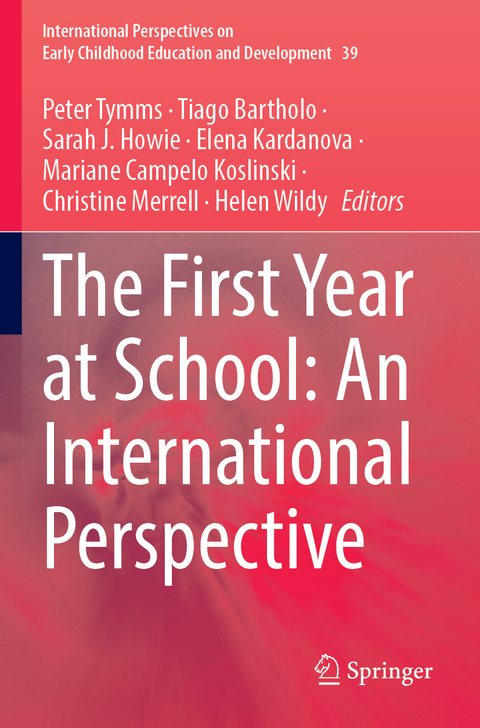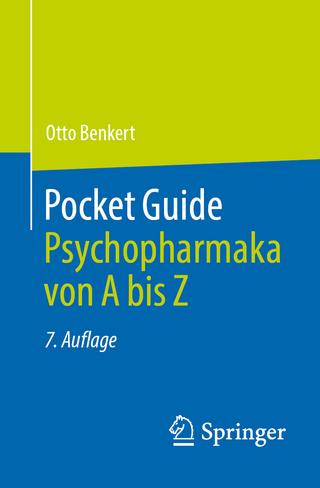
The First Year at School: An International Perspective
Springer International Publishing (Verlag)
978-3-031-28591-2 (ISBN)
This book explores an under-researched but vital part of education: the first year at primary/elementary school. The work shows that children's progress varies enormously from school to school, class to class and child to child. This variation is important because the more progress that children make in that first year of school, the higher their academic attainment at the end of compulsory schooling.
The iPIPS (international Performance Indicators in Primary Schools) project, upon which this book is based, has been able to provide deeper insights into some of the key issues within and across different contexts whilst highlighting new and some ongoing issues. Despite all the work there remain unanswered or new puzzling issues which are also explored.
We need to know how to improve the education at that stage and, more broadly, we need greater clarity about when children should be taught to read and be introduced to formal arithmetic, in other words, when they should start school. We also need to be clearer about whether, when and how young children should be assessed. The book will suggest some answers but it will raise important questions and dilemmas for which we do not, as yet, have answers.
Peter Tymms, After taking a degree from Cambridge University in Natural Sciences Peter Tymms taught in a wide variety of schools from Central Africa to the north-east of England before starting an academic career. He was "Lecturer in Performance Indicators" at Moray House, Edinburgh before moving to Newcastle University and then to Durham University where he was promoted to Professor of Education. He is now an Emeritus Professor.
His main research interests include monitoring, assessment, performance indicators, ADHD, reading and research methodology. He originated the PIPS project, which was designed to monitor the affective and cognitive progress of children through primary schools starting with a computer adaptive on-entry baseline assessment. It has been used with more than a million children worldwide. Peter Tymms was Director of the Centre for Evaluation and Monitoring (CEM) until 2011 when he took over as Head of Department and Chair of the Board of Studies in the School of Education. At present he is devoting some of his time to an international project designed to study children starting school around the world. The project is known as iPIPS.
Tiago Bartholo is an Associate Professor at the Federal University of Rio de Janeiro. His research interest includes the robust evaluation of education as a lifelong process, focused on issues of effectiveness, equity, and well-being. He has more than sixteen years of experience teaching at schools, universities, and working on research and professional projects in Brazil, England, and Spain. Worked as a consultant for the FNDE (National Fund for the Development of Education, 2009-2010), the Ministry of Education (Programa Segundo Tempo, 2010-2011), Carlos Chagas Foundation, São Paulo (2014-2020), the Interamerican Development Bank (2017-2018) and the United Nations Development Program (PNUD Brasil, 2022). He has published extensivelyin Brazil and internationally in peer-reviewed journals. Visiting researcher at Durham University, England (2014 and 2017), University of Birmingham, England, (2012 and 2013), and the University of León, Spain (2009). Tiago is currently one of the leading researchers in a national impact study of Covid-19 on students' development and well-being in Brazil, helping design a national recovery plan for public education.
Sarah Howie is the founding Director of the Africa Centre for Scholarship, Director of Unit for International Credentialling and Professor of Education at Stellenbosch University, South Africa since 2017. Previously she was the founding Director of the Centre for Evaluation and Assessment (CEA) and Professor of Education, Faculty of Education, at the University of Pretoria for 17 years.
Her career began at the Foundation for Research Development (now the National Research Foundation) after she had completed her undergraduate and honours degrees from Stellenbosch University and University of Cape Town respectively. She obtained her Master's degree in Education from University of Witwatersrand, whilst working fulltime at the Human Sciences Research Council. She completed her PhD at the University of Twente, the Netherlands and thereafter established the research Centre for Evaluation and Assessment at the University of Pretoria where she was appointed as a Research Director in 2001 and Full Professor in 2007-2017. She has published extensively internationally in peer-reviewed journals and edited and co-edited books. She has served as the National Research Coordinator of the IEA's Trends in Mathematics and Science Study (TIMSS) 1995 (Pop3), 1999; Progress in International Reading Literacy Study (PIRLS) 2006, 2011, 2016 and Second International Technology in Education Study (SITES) 1999 and 2006 focused on international assessments in primary and secondary schools. She was also the national coordinator for the Nuffi
Dedication.- Foreword.- Part 1. History of the International Performance in Primary School Indicators project.- Chapter 1. A Reflection on Three Decades of Development.- Chapter 2. The First Year at School. A Perspective from a Personal Standpoint.- Part 2. Introduction. The Challenge of Assessing Young Children's Progress Fairly and Making Comparisons.- Chapter 3. Educational Assessment of Young Children.- Chapter 4. International Comparative Assessments in Education.- Chapter 5. International Comparative Assessments of Young Children. Debates and Methodology.- Chapter 6. Teachers' Roles in the Assessment of Young Children.- Part 3. Growth of the International Performance in Primary School Indicators.- Chapter 7. Packing 200 000 Years of Evolution in One Year of Individual Development. Developmental Constraints on Learning in the First Primary School Year.- Chapter 8. Children's Developmental Levels at the Start of School.- Chapter 9. Progress Made During the First Yearat School.- Part 4. The First Year at School. Education Inequality, Poverty and Children's Cognitive Development.- Chapter 10. Measures of Family Background in the iPIPS Project - Possibilities and Limits of Comparative Studies Across Countries.- Chapter 11. The Association Between Adverse Socio-Economic Circumstances and Cognitive Development within an International Context.- Part 5. Using iPIPS Data for Teaching and Informing Policy.- Chapter 12. Strategies to enhance Pedagogical Use of iPIPS Data and to support Local Government Decision-Making in Brazil.- Chapter 13. Using Assessment Data to Inform Teaching. An Example from Lesotho.- Chapter 14. The Use of iPIPS Data for Policy Assessment, Government Evidence-Based Decision Making and Pedagogical Use by Schools in Russia.- Chapter 15. Using data to inform teaching. An example from the Western Cape, South Africa.- Chapter 16. iPIPS Research Evidence. Case Studies to Promote Data Use.- Part 6. Novel and Unexpected Findings from iPIPS.- Chapter 17. Phonological Processing and Learning Difficulties for Russian First-Graders.- Chapter 18. Name Writing Ability and its Effect on Children Future Academic Attainment.- Chapter 19. The Early Physical-Motor Development Predictors of Young Children's Mathematics Achievements.- Chapter 20. Inattentiveness Predicts Reading Achievement in Primary School, but with Hyperactivity/Impulsivity it's more Complicated.- Chapter 21. The Effects of Class Composition on First-Graders' Mathematics and Reading Results. Two Countries' Cases.- Part 7. Conclusion.- Chapter 22. Reflections and Recommendations.
| Erscheinungsdatum | 30.06.2024 |
|---|---|
| Reihe/Serie | International Perspectives on Early Childhood Education and Development |
| Zusatzinfo | XXX, 337 p. 27 illus. in color. |
| Verlagsort | Cham |
| Sprache | englisch |
| Maße | 155 x 235 mm |
| Themenwelt | Geisteswissenschaften ► Psychologie ► Klinische Psychologie |
| Sozialwissenschaften ► Pädagogik ► Vorschulpädagogik | |
| Schlagworte | assessing young children with objective measures • child growth, pedagogy and the curriculum • grade 1 in elementary/primary school • role of teachers in the assessment process • school effectiveness • school monitoring • the effect of phonological abilities |
| ISBN-10 | 3-031-28591-3 / 3031285913 |
| ISBN-13 | 978-3-031-28591-2 / 9783031285912 |
| Zustand | Neuware |
| Informationen gemäß Produktsicherheitsverordnung (GPSR) | |
| Haben Sie eine Frage zum Produkt? |
aus dem Bereich


